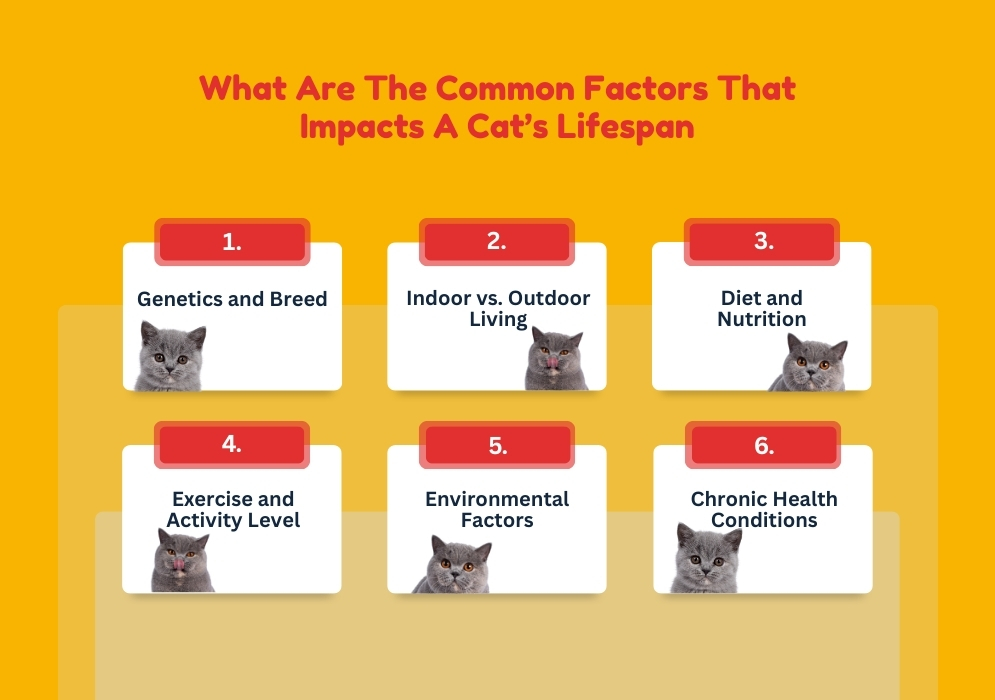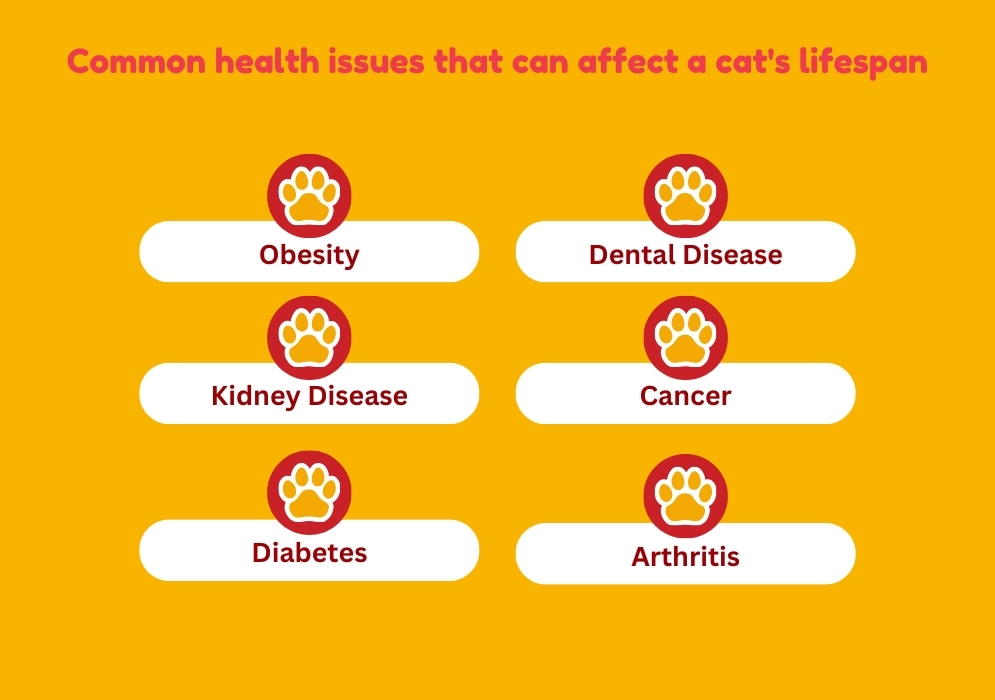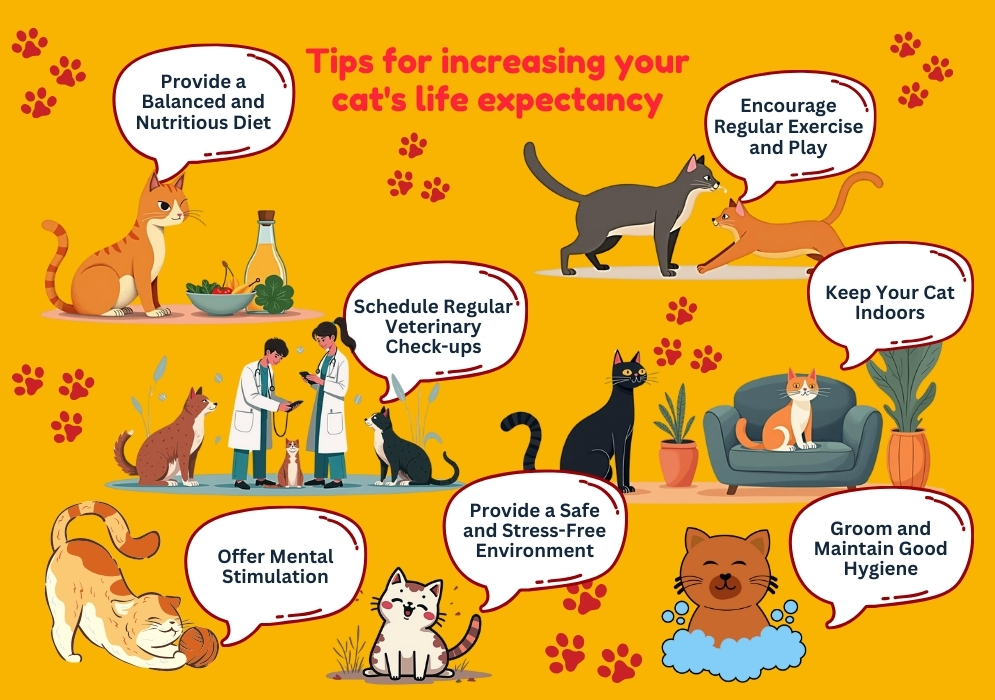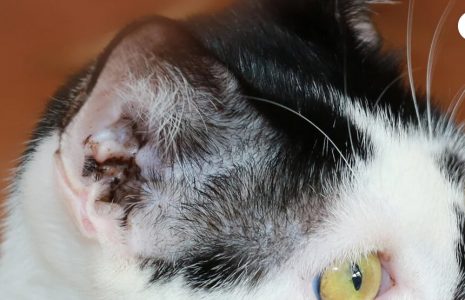How Long Do Cats Live: Is It Really 9 Lives?


Have you ever wondered just how many of those nine lives your cat still has left? With their mysterious personalities and independent nature, it often feels like they really have nine lives stored somewhere. But the sad reality is that they do not have very long lifespan, especially when compared with us.
So how long do cats live and aside from age (which is the biggest villain of all), what are the factors that affect their lifespan? In this article, we will explore the answers to these questions. Additionally, we will give you some tips on how to help your kitty make the most of all their ‘nine lives.’ So let’s start!
What Is The Average Lifespan of Domestic cats?
When it comes to the average lifespan of domestic cats, there is no one-size-fits-all answer. However, most veterinarians and experts are of the view that the typical lifespan range for a well-cared-for indoor cat is between 12 and 18 years. Outdoor cats, on the other hand, tend to have a shorter lifespan, averaging around 5 to 7 years because of the increased risks they face.
It’s important to note that these averages are just guidelines, and lifespan for some cats may be shorter or longer. This is because there are various factors, such as breed, health, and living conditions that can affect a cat’s lifespan. Some cats have even been known to reach the remarkable age of 20 years or more, defying the odds and becoming true feline elders.
To put these numbers into perspective, consider that a 15-year-old cat would be equivalent to a human reaching approximately 76 years of age. This highlights the importance of providing your cat with the best possible care and attention throughout its life to maximize its chances of reaching its golden years.
What Are The Common Factors That Impacts A Cat’s Lifespan?

Far from having nine lives, a cat’s lifespan is influenced by a lot of factors, ranging from genetics and breed to lifestyle and environmental conditions. If you want to create an environment for them that will help increase their lifespan, then you need to know and understand these factors.
Genetics and Breed
Just like humans, a cat’s genetic makeup plays a significant role in determining its potential lifespan. Certain breeds are known for their longevity, while others may be more prone to inherited health issues that can impact their lifespan.
Indoor vs. Outdoor Living
The decision to keep a cat indoors or allow it to roam outside can have a profound impact on its lifespan. Outdoor cats face numerous risks, including exposure to diseases, accidents, and predators, which can significantly shorten their lives.
Diet and Nutrition
A properly balanced and nutritious diet is essential for a cat’s overall health and long life. It will help support and improve their immune system, maintain a healthy weight, and reduce the risk of diet-related health issues.
Exercise and Activity Level
Cats are naturally active creatures, and providing them with opportunities for exercise and play can help keep them physically fit and mentally stimulated, contributing to a longer and healthier life.
Environmental Factors
The environment in which a cat lives can also influence its lifespan. Factors such as exposure to toxins, pollutants, and stress can have negative impacts on a cat’s health and well-being.
Chronic Health Conditions
This is also another factor that can significantly affect a cat’s lifespan. Conditions such as chronic kidney disease, diabetes, hyperthyroidism, and heart disease are common in older cats and can shorten their lives if not managed properly.
Common Health Issues That Can Affect a Cat’s Lifespan

Despite their reputation for resilience, cats are susceptible to various health issues that can potentially impact their lifespan. Being aware of these common conditions can help you take proactive measures to prevent or manage them, ensuring your feline companion enjoys a long and healthy life.
Obesity
Obesity is an increasing issue among domestic cats, especially indoor cats. It can cause a host of health problems, including diabetes, arthritis, and respiratory issues. Maintaining a healthy weight through proper diet and exercise is crucial for longevity.
Dental Disease
Poor dental hygiene can lead to periodontal disease, which can cause pain, infection, and even organ damage if left untreated. Regular dental cleanings and at-home care can help prevent this issue.
Kidney Disease
Chronic kidney disease is a common age-related condition in cats and can significantly impact their lifespan if not managed properly. Early detection and treatment are key to slowing its progression.
Cancer
Various types of cancer, such as lymphoma, mammary cancer, and skin cancer, can affect cats and potentially shorten their lifespan. Regular veterinary check-ups and early detection are essential for successful treatment.
Diabetes
Feline diabetes is a condition when the cat’s body does not produce the insulin hormone properly. This hormone is responsible for keeping blood sugar levels in check. So when insulin is not produced in sufficient amounts, it leads to increased blood sugar levels. If left untreated, it can lead to serious complications and a shortened lifespan.
Arthritis
As cats age, they can develop arthritis, which can cause pain, mobility issues, and a decreased quality of life. Proper pain management and lifestyle adjustments can help alleviate the symptoms and improve their overall well-being.
By being proactive and working closely with your veterinarian, you can help detect and manage these health issues early on, giving your cat the best chance at a long and healthy life.
Tips for Increasing Your Cat’s Life Expectancy

As a responsible cat owner, there are several steps you can take to help increase your feline companion’s life expectancy and ensure they enjoy a long and fulfilling life by your side. Here are some practical tips to consider:
Provide a Balanced and Nutritious Diet
A well-balanced and high-quality diet is essential for your cat’s overall health and helps them live longer. Talk to your veterinarian to decide a suitable diet for your cat’s age, breed, and activity level.
Encourage Regular Exercise and Play
Cats are naturally active creatures, and regular exercise and playtime can help keep them physically fit and mentally stimulated. Invest in interactive toys, cat trees, and scratching posts to encourage physical activity.
Keep Your Cat Indoors
While outdoor adventures may seem enticing, keeping your cat indoors can significantly reduce their exposure to various risks, such as traffic accidents, fights with other animals, and exposure to diseases and parasites.
Schedule Regular Veterinary Check-ups
Regular veterinary check-ups are crucial for detecting and addressing potential health issues early on. Follow your veterinarian’s recommendations for routine vaccinations, parasite prevention, and preventive care.
Provide a Safe and Stress-Free Environment
Cats thrive in a calm and stress-free environment. Minimize potential stressors, such as loud noises, sudden changes in routine, and conflicts with other pets or family members.
Groom and Maintain Good Hygiene
Regular grooming and maintaining good hygiene can help prevent skin and coat issues, as well as reduce the risk of dental problems and other health concerns.
Offer Mental Stimulation
In addition to physical exercise, you also need to pay attention to your cat’s mental health. It is because a bored cat is an unhappy cat which also impacts their physical health. So make sure to provide interactive toys, puzzle feeders, and rotate their toys to keep them engaged and mentally stimulated.
By implementing these tips and working closely with your veterinarian, you can help create an environment that promotes longevity and enhances your cat’s overall quality of life.
Remember, every cat is unique, and their individual needs may vary based on their breed, age, and overall health. Regular veterinary check-ups, a balanced and nutritious diet, access to clean water, regular exercise and mental stimulation, and a safe, stress-free environment are all essential components of promoting longevity in your feline companion.









Leave A Comment